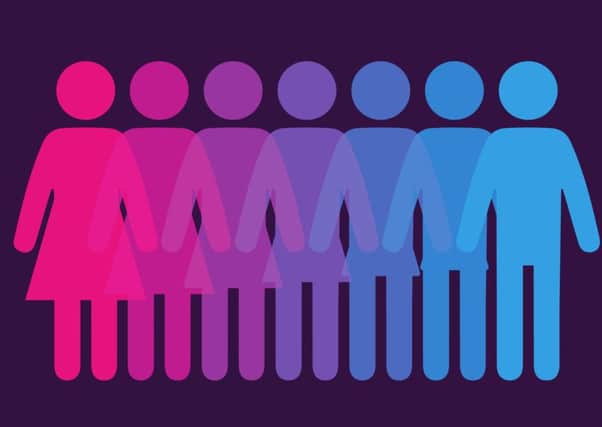James Morton: Trans rights trump '˜sex' vs '˜gender' battle


However, it is common for many words to be used differently in academia than in legal contexts or in casual daily use. Society and equality law have been using “sex” and “gender” interchangeably for decades. Yet suddenly a small but determined group of people have popped up claiming that using the word “gender” instead of “sex” is a conspiracy by trans people to deny the reality of the differences between physical bodies and to ignore the historic and ongoing existence of sexism.
Originally, the word “gender” was just a grammatical term for the tendency of languages such as German to declare chairs masculine and lamps feminine. So why do English-speaking societies often use the word “gender” as a synonym for the word “sex”? In short, prudishness. A reluctance to risk confusion with the sexual activity meaning of the word “sex” has resulted in many people preferring the term “gender”. Rather than intending to talk exclusively about a narrower, social aspect of a person’s sex, it’s used to spare people’s blushes. Trans people moved away from using the term “transsexual” because it kept getting confused with sexual activity.
Advertisement
Hide AdAdvertisement
Hide AdIn the eyes of UK law, sex and gender have always been considered interchangeable terms for female/woman and male/man classification. UK equality law protects people because of their sex, but this includes much more than protection based solely on the difference between people’s bodies. That is why if a woman experiences harassment at work because of outdated gender stereotypes, she is protected. Indeed, trans people won their legal equality protections in response to sex discrimination.
The European Court of Human Rights has firmly established that where a person’s sex recorded at birth does not match their self-identified sex (ie their gender identity), then they must be allowed to transition and update their sex on official records without being required to make changes to their physical body. There is also growing recognition that more than a simplistic binary exists of either bodies or identities.
Whether labelled sex or gender, the law is clear that trans people’s lived identities must be respected and recorded. Whether an official form asks a person their “sex” or their “gender”, trans people have been allowed to answer with their self-identity for decades. This does not please biological essentialists but human rights and equality take priority. We know that our bodies can be different, but how we are treated in society is about so much more than that. Including trans people within both the sex and gender terms they identify does not erase the complex interaction between bodies, lives and experiences had by all people, but rather acknowledges it.
It can be telling when people who are generally comfortable with the complexities and imperfections of the English language abruptly become extremely rigid about particular words. Suddenly demanding that a single narrow definition of a word must apply for all purposes and raising objections to inclusive terminology are common ways of trying to derail equality progress.
Five years ago, Scotland was embroiled in a heated debate about the word “marriage” – with some people arguing that allowing same-sex marriages would destroy the meaning of the term marriage. A very similar debate is currently taking place in relation to the meaning of the word “woman”. In a misguided attempt to stop trans women being treated as women, a small number of people are trying to purge the overlapping definitions of sex and gender into a rigid claim that sex always equals chromosomes and gender is purely about oppressive stereotypes. This is simply not how Scottish, UK or European law regard the multifaceted concept of “sex”. Trans people exist and are lawfully able to use male or female facilities in accordance with their lived identity. Their inclusion is not dependent on the use of the term “gender”.
James Morton is the manager of the Scottish Trans Alliance.